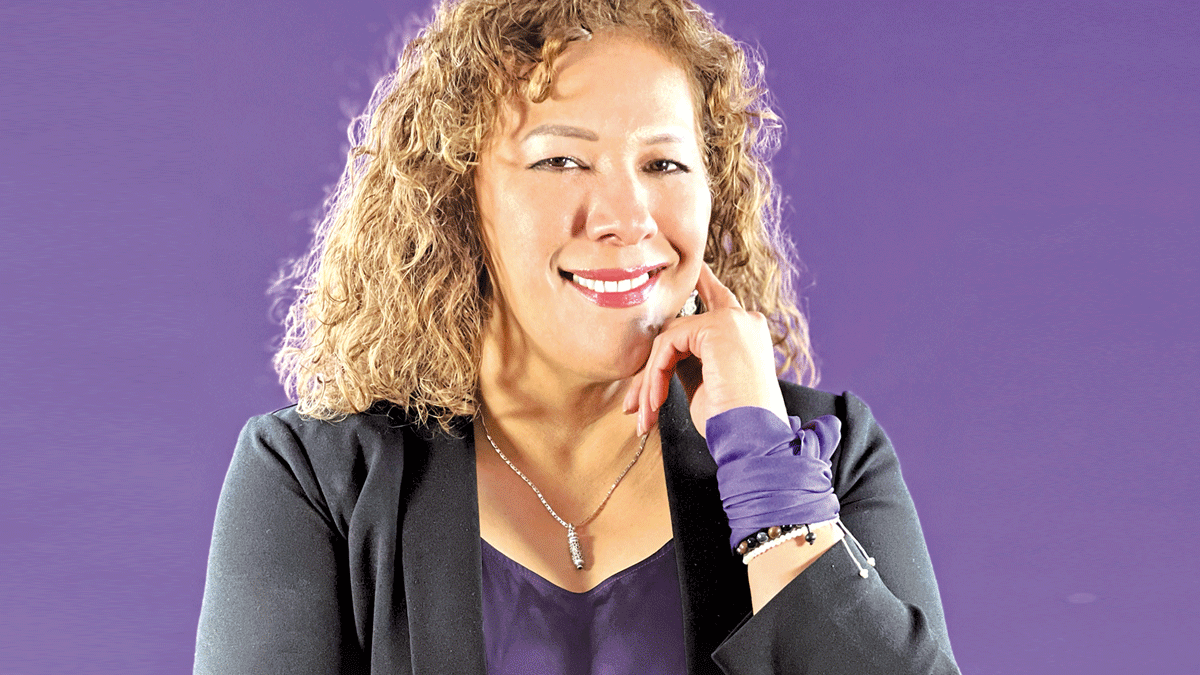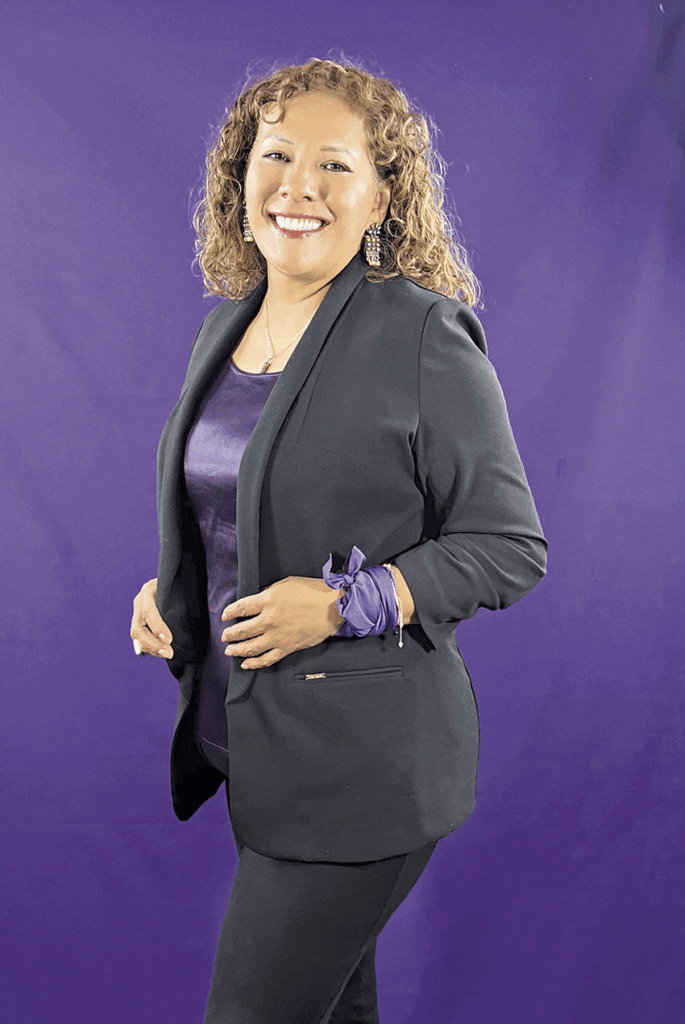Teen World
¡Ya no más!
Publicado
3 años antesel
Por
Karen Orona
Ayudemos a las víctimas de violencia sexual a encontrar la paz que les arrebataron
El respeto no se gana, se aplica a conciencia abierta y con toda la moral posible
Cuando alguien es obligado o manipulado a hacer algún acto sexual no deseado, es decir, sin consentimiento, lo llamamos violencia sexual, la cual no tiene género ni edad y puede ocurrirle a un ser querido, a alguien cercano, e incluso a nosotras.
La violencia sexual no siempre es perpetrada por un desconocido, desafortunadamente también debemos cuidarnos de aquellos que son cercanos como padres de familia, tíos, abuelos, hermanos, amigos, novios, etcétera.
Cuando se es víctima, la mayoría del tiempo se vuelve algo tan cotidiano que no se sabe si es realmente un abuso, por lo que casi siempre no se habla de ello y mucho menos se reporta a alguna autoridad, ya sea por vergüenza o por miedo.
Otras razones para que la víctima no busque ayuda es no tener suficientes pruebas para ser creído, además de la desconfianza.
Sin embargo, al momento de buscar esa ayuda, quien la padece se convierte en una sobreviviente, alguien que de igual manera necesita tiempo para poder sobrellevar su evento traumático, tiempo en el que también necesita de nosotros, de nuestra voz, nuestro apoyo y nuestro amor, el cual les hace sentir que no están solos.
Tal vez la realidad choque con nuestros pensamientos y dudas, pero nunca dudes en ayudarlos sin importar quién es el agresor. Apoyemos a cualquier víctima de abuso sexual, llevémosla con una psicológica o restauradora para que su alma y su cuerpo encuentren la paz y la inocencia que les robaron.
Hemos escuchado que el respeto se gana, pero qué hay de ese respeto que merecemos en todo momento, el respeto a nuestra sexualidad.
Cada uno de nosotros como mujeres, niños y hombres merecemos respeto, el cual no se gana, se aplica a conciencia abierta y con toda la moral posible. La victima nunca es la culpable, ya no más violencia sexual en ningún sentido.
No more!
Let’s help victims of sexual violence find the peace that took away from them
Respect is not earned; it is applied with an open conscience and as much morality as possible
When someone is forced or manipulated to perform an unwanted sexual act, that is, without consent, we call it sexual violence, which has no gender or age and can happen to a loved one, to someone close to us, or even to us.
A stranger does not always perpetrate sexual violence; unfortunately, we must also beware of those close to us, such as parents, aunts, uncles, grandparents, siblings, friends, boyfriends, etc.
When you are a victim, it becomes such an everyday occurrence that you do not know if it is abuse, so you almost always do not talk about it, and much less report it to any authority, either out of shame or fear.
Another reason the victim does not seek help is not having enough evidence to be believed and distrust.
However, when seeking help, the victim becomes a survivor, someone who also needs time to cope with their traumatic event, a time in which they also need us, our voice, our support and our love, which makes them feel that they are not alone.
Reality may clash with our thoughts and doubts, but never hesitate to help them no matter who the aggressor is. Let’s support any victim of sexual abuse; let’s take them to a psychologist or restorer so that their soul and body can find the peace and innocence stolen from them.
We heard respect is earned, but what about the respect we deserve because of our sexuality.
Each of us, as women, children and reserves respect, which is not earned; it is applied with an open conscience and with all the morals possible. The victim is never to blame; no more sexual violence.
Te puede interesar

Utilicemos los talentos y dones que nos fueron depositados y hagamos que funcionen para llegar al lugar que está diseñado para nosotros
Aprovechar nuestra juventud no sólo implica diversión, también conlleva un tiempo de siembra, y esta no únicamente se relaciona con dinero, hay cosas que debemos atesorar intensamente como: el tiempo, la salud, la paz, la familia, las buenas compañías y los momentos.
Si nos fijamos y volvemos a leer, todas ellas son cosas que no se pueden adquirir en ningún comercio, son cosas que sólo están y que a veces nos pasan desapercibidas, todo lo demás como: el éxito, el dinero, la pareja ideal, la carrera u oficio de tus sueños, llegará por añadidura.
La juventud no está peleada con las buenas decisiones, es verdad que todos tenemos derecho a equivocarnos y a ir aprendiendo de los errores, pero debemos de evitar a toda costa equivocarnos con nosotros mismos, es por ello que debemos de aprovechar nuestra juventud para irnos construyendo a nosotros mismos, empezando por nuestro cuerpo ya que es el lugar que habitaremos el resto de nuestra vida, cuidemos de él en la medida de lo posible a través de la comida y el ejercicio, hay que hacerlo no únicamente por cuestión de apariencia física sino porque así estaremos construyendo nuestra autonomía, respetemoslo y dignifiquémoslo cuidando de él alejándolo de cualquier cosa que pueda dañarlo.
También hay que alimentar nuestra mente con pensamientos que edifiquen, que nos impulsen y que nos hablen de victoria. El mundo ya está demasiado lleno de cosas negativas como para enfocarnos en ellas, ahora y sin que sea menos importante, cuidemos de nuestra alma manteniendo una buena relación con aquello en lo que creamos firmemente, pongamos un ancla en nuestras metas y proyectos y no permitamos que los vientos fuertes de la vida nos muevan, pongamos nuestra fe en quien nos creó y dejemos que la vida nos sorprenda.
No seamos tan duros con nosotros mismos, tratémonos con amor y paciencia pues cada uno estará viviendo su propio proceso para llegar a su destino, aprovechemos la juventud de la mano de los talentos y dones que fueron depositados en nosotros y hagamos que funcione a nuestro ritmo sin comparaciones porque todos sin distinción llegaremos al lugar que está diseñado para nosotros.
P.D. Cada estación tiene sus propios retos, pero en la juventud es donde hechas a la mochila las armas con las que te defenderás el resto de tu vida. ¡Aprovéchala!.
Making the Most of My Youth
Let’s use the talents and gifts placed within us and make them work to reach the place designed for us.
Making the most of our youth isn’t just about having fun — it also involves a season of sowing. And this sowing isn’t only about money; there are things we must treasure deeply, like: time, health, peace, family, good company, and meaningful moments.
If we take a closer look and read that again, we’ll notice that all of these are things that can’t be bought anywhere — they simply exist, and we often take them for granted. Everything else — success, money, the ideal partner, your dream career or trade — will come as a result.
Youth doesn’t have to be at odds with good decisions. It’s true that we all have the right to make mistakes and to learn from them, but we must avoid, at all costs, making mistakes that harm ourselves. That’s why we need to take advantage of our youth to build ourselves up — starting with our bodies, because that’s the place we’ll inhabit for the rest of our lives.
Let’s care for it as much as we can through healthy food and exercise — not just for physical appearance, but because this builds our independence. Let’s respect and dignify our bodies by keeping them away from anything that might harm them.
We also need to nourish our minds with thoughts that uplift us, push us forward, and speak of victory. The world is already filled with negativity — we don’t need to add more to it. And just as importantly, let’s care for our souls by maintaining a good relationship with what we firmly believe in. Let’s anchor ourselves in our goals and projects and not allow the strong winds of life to shake us. Let’s place our faith in the One who created us — and allow life to surprise us.
Let’s not be so hard on ourselves. Treat yourself with love and patience, because everyone is living their own process on the way to their purpose.
Let’s make the most of our youth, together with the talents and gifts that have been placed in us — and let’s make them work at our own pace, without comparisons. Because we will all, without exception, arrive at the place that was designed just for us.
P.S. Every season has its own challenges — but youth is when you pack your backpack with the weapons, you’ll use to face the rest of your life. Make the most of it!.

Teniendo como sello particular el arte, la activista ha dejado huella por casi tres décadas en la defensoría de los derechos de la mujer y las niñas
Activista, feminista y defensora de las mujeres y las niñas desde hace 26 años, así como fundadora de Cultiva: Arte, Comunidad y Equidad A. C., que tiene como objetivo dar oportunidades de superación a personas en situación de vulnerabilidad, es como presenta Visionarias a Verónica Corchado, juarense distinguida e inspiración para quienes buscan una nueva perspectiva de la vida.
Corchado Espinoza ha dedicado su tiempo y esfuerzo a, desde su trinchera, velar por la seguridad de las mujeres y el resto de la sociedad fronteriza, está a favor de la cultura, la no violencia y la paz, para lo cual trabaja con otras organizaciones que le ayuden a cumplir el cometido.
“Eh estado siempre observando cómo se mueve el tema de la violencia en los diferentes espacios”, nos comenta quien en el suroriente de Juárez es un rostro conocido a través del espacio ecológico de adobe llamado La Promesa, un proyecto cultural en colaboración con la artista internacional mexicana, Teresa Margolles, donde se hace arte y se trabaja con mujeres víctimas de abuso en cualquiera de sus versiones.
En La Promesa también tienen espacio los menores, quienes con talento y creatividad elaboran arte, mismo que tras ser expuesto les da la inspiración para no caer en las garras de la violencia y buscar un mejor futuro.
Pero el trabajo de Verónica va más allá de buscar y generar sus propios recursos, ella junto a un grupo de colectivos se encarga de atraer presupuestos y oportunidades para otros que también quieren poner su granito de arena y generar mejores condiciones para los menos afortunados.
Corchado asegura que trabajar por otras personas para mejorar su calidad de vida es lo suyo.
Servició público
El trabajo destacado de esta visionaria, así como la experiencia acumulada, el apoyo de organizaciones y académicas, además del alcalde de ese momento, Armando Cabada, llevó a Verónica a ser la primera directora del Instituto Municipal de la Mujer, donde gestionó una estrategia integral de prevención y atención de la violencia, que a su vez concretó la construcción del edificio morado en el Centro Histórico de Ciudad Juárez, una red de baños públicos, y articuló las dependencias para empujar un corredor seguro para las mujeres.
“Por primera vez en la historia después de tener muchos años de gestionar un espacio de atención por nosotras (activistas), se hizo la gestión a través de un proyecto multinivel para crear una especie de estrategia de prevención en el Centro de la ciudad con una infraestructura, la primera infraestructura que debería ser una pena para nosotras… La primera infraestructura de atención después de cientos de víctimas de feminicidio”, menciona para quien parte de su trabajo es convencer a las personas agredidas de denunciar, un acto que en su mayoría resulta difícil.
“Al final del día, si logramos que una mujer que padece violencia hoy, y ahorita funciona el 911 de manera adecuada y la podemos referenciar a la Fiscalía, se genera su expediente, se le asigna un ministerio público, se le conduce cómo generar su denuncia y hay un seguimiento, esa mujer se siente defendida, va a creer en las instituciones”, afirma.
Precisamente, parte de su trabajo, asegura, también es que las personas crean en las autoridades, reivindicar el servicio público, así como poner atención y prevenir la violencia dentro de las familias, lo cual le llena de orgullo y emoción, sentimientos que espera replicar cuando las siguientes generaciones superen en conocimiento y práctica lo que ella en años a trabajado en beneficio de la comunidad.
“Si no somos capaces de defender a las niñas y los niños no somos capaces de nada”

Veronica Corchado
With art as her distinctive hallmark, this activist has made a mark for nearly three decades defending the rights of women and girls.
Activist, feminist, and advocate for women and girls for 26 years, Veronica Corchado is also the founder of Cultiva: Arte, Comunidad y Equidad A.C., an organization aimed at offering opportunities for people in vulnerable situations to overcome adversity. Visionarias introduces Corchado, a distinguished native of Ciudad Juarez and an inspiration to those seeking a new perspective on life.
Corchado Espinoza has dedicated her time and energy to safeguarding women and the broader border community from her own front lines. She stands for culture, non-violence, and peace, and works with other organizations that support these goals.
“I’ve always observed how the issue of violence moves through different spaces,” she tells us. In the southeastern part of Juarez, she is a well-known face through La Promesa, an adobe ecological space. This cultural project, in collaboration with internationally renowned Mexican artist Teresa Margolles, uses art to work with women who have experienced abuse in any form.
La Promesa also welcomes children, who channel their creativity and talent into art—art that, once exhibited, inspires them to resist the pull of violence and strive for a better future.
But Veronica’s work goes beyond creating and managing her own resources. Together with a collective of organizations, she brings in funding and opportunities for others who want to contribute and improve conditions for the less fortunate.
Corchado believes that working to improve other people’s lives is her true calling.
Public Service
Veronica’s outstanding work, along with her accumulated experience, the support of academic institutions and organizations, and the backing of then-mayor Armando Cabada, led her to become the first director of the Municipal Institute for Women. There, she developed a comprehensive strategy for violence prevention and victim care, which led to the construction of the iconic Purple Building in the historic center of Ciudad Juarez, a network of public restrooms, and the coordination of various agencies to establish a safe corridor for women.
“For the first time in history—after many years of advocating for a care space by us activists—a multi-level project was carried out to create a kind of prevention strategy in the city center with infrastructure. The first infrastructure—though it should be a source of shame for us—of its kind for care, after hundreds of victims of femicide,” she remarks.
Part of her work involves encouraging survivors to report abuse, something that is often difficult to do.
“At the end of the day, if we manage to support just one woman suffering violence, and 911 functions properly, and we can refer her to the prosecutor’s office, her case is filed, a public prosecutor is assigned, she is guided on how to file a report, and there is follow-up—that woman will feel defended. She’ll believe in the institutions,” she says.
Indeed, she adds, part of her mission is to restore people’s trust in public authorities, to reclaim public service, and to focus on preventing violence within families. These are sources of pride and emotion for her—feelings she hopes to see reflected in future generations, as they surpass her in knowledge and action for the benefit of the community.
“If we are not capable of defending girls and boys, we are not capable of anything.”

Cuando escuchó las palabras de mi esposa “¿Te digo o no te digo?… ¡Estoy embarazada!” mientras tomaba un baño, mi vida dio un giro.
“Mi corazón latía a mil por segundo. Mis ojos llenos de lágrimas y con una gran felicidad dentro de mi. Será esto un sueño?” me preguntó con entusiasmo.
La etapa de ser padre ha llegado a mi vida, y aunque todavía no tenga a ese hermoso niño en mis brazos, considero que ya soy papá. Porque llega a mi mente, un instinto y espíritu al querer cuidar, apoyar y proveer para mi pequeña familia.
En la sociedad, hay un estigma de nombrar a madres y padres, una vez que el bebé ya ha nacido. Sin embargo, desde el primer día que descubre que hay una vida dentro del vientre la familia es empieza ha prepararse para la llegada de ese nuevo miembro.
Como padres pensamos y nos preguntamos, en que nuestra esposa este cómoda, que no se enferme, ¿si necesitan deuna habitación más amplia?, ¿qué pasará con los pañales del bebé?, y al hacerse estas preguntas veía que ya estaba pensando como un padre.
Pero no todo era un ámbito económico o de comodidad. ¿Qué había de mi persona? ¿Qué hay de mi espíritu? me cuestione.
Por tal motivo, comencé a prepararme mentalmente, para ser más resiliente, tratar de ser humilde, y hasta para poder ser un padre consentidor y sobre todo, amoroso.
Los hijos son un regalo
También recorde que la Biblia nos dice “los hijos son un regalo del Señor; son una recompensa de su parte. Los hijos que le nacen a un hombre joven son como flechas en manos de un guerrero” (Salmos 127:3-4).
Agradezco a Dios por mi hijo, que viene en camino, porque los hijos son una bendición, no una carga. Me trae felicidad, nervios, orgullo y emoción; y no lo cambiaría por nada de este mundo.
“Dios ha sido fiel, bueno y justo. Estoy confiado que lo seguirá siendo conmigo como papá y con cada uno de sus hijos”.
The Gift of Being a Father
When I heard my wife’s words, “Should I tell you or not?… I’m pregnant!” While taking a shower, my life changed.
“My heart was beating a mile a minute. My eyes were filled with tears, and I was filled with such joy. Could this be a dream?” she asked excitedly.
The stage of becoming a father has arrived in my life, and even though I don’t yet have that beautiful child in my arms, I consider myself a dad. Because it fills my mind with an instinct and spirit to want to care for, support, and provide for my little family.
In society, there is a stigma attached to naming mothers and fathers once the baby is born. However, from the first day they discover there is a life inside the womb, the family begins to prepare for the arrival of this new member.
As parents, we think and wonder: Should our wife be comfortable, should she not get sick, should they need a bigger room? What about the baby’s diapers? As I asked myself these questions, I saw that I was already thinking like a father.
But it wasn’t all about finances or comfort. What about me? What about my spirit? I questioned myself.
For this reason, I began to prepare myself mentally to be more resilient, to try to be humble, and even to be a supportive and, above all, loving father.
Children Are a Gift
I also remembered that the Bible tells us, “Children are a gift from the Lord; they are a reward from him. Children born to a young man are like arrows in the hand of a warrior” (Psalm 127:3-4).
I thank God for my son, who is on the way, because children are a blessing, not a burden. They bring me happiness, nerves, pride, and excitement; and I wouldn’t trade them for anything in this world.
“God has been faithful, good, and just. I am confident that he will continue to be so with me as a father and with each of his children.”






